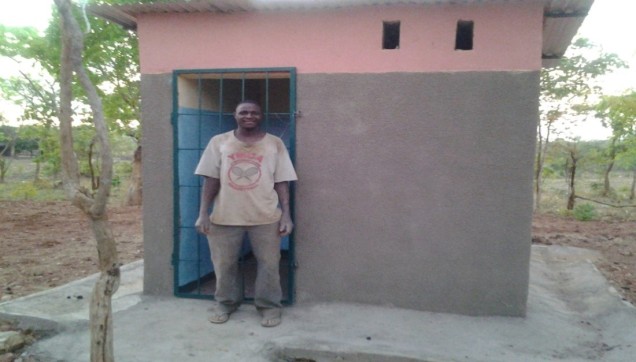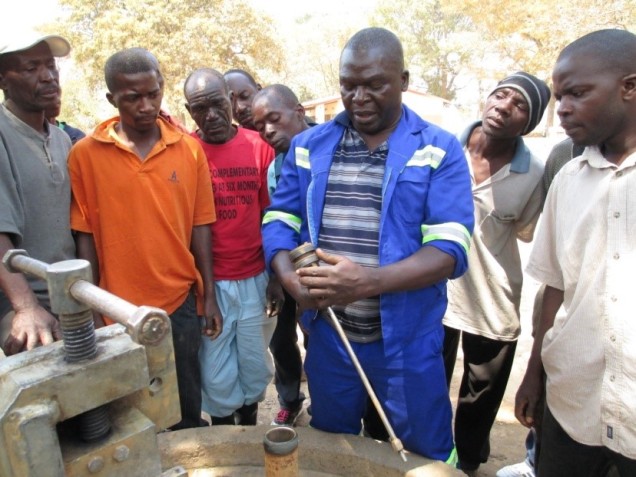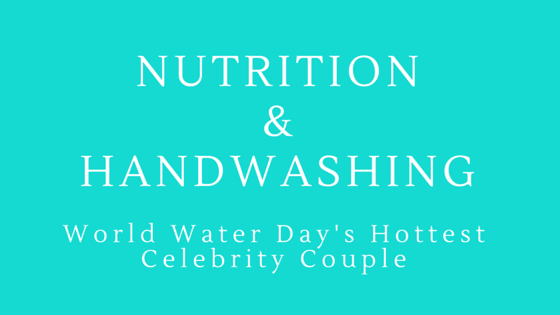In 2011, USAID/Zambia invested $18 million in a four-year WASH in Schools program that covered half the districts of Eastern Province and provided enough resources to meet the sanitation facility, water points, and hygiene education needs of the school population of those districts. These numbered 200,000 students attending more than 400 primary schools. SPLASH (Schools Promoting Learning Achievement through Sanitation and Hygiene) was implemented from 2012-2015. The USAID funded WASHplus project, managed by FHI 360, implemented SPLASH in partnership with CARE.

Ananias stands outside the double ventilated improved pit latrine that he constructed
Twenty-two year old Ananias Shawa was hired as a helper by a local artisan when the SPLASH project started constructing washrooms and latrines at Chisomo Primary School, near his village in Chipata District in Zambia’s Eastern Province.
As a helper, Ananias learned to mix the concrete and also fetched water. He was a “daka boy,” which in the local language, means “concrete that has been mixed.” He easily met the job’s requirement, which was to be physically fit and willing to work hard. Ananias was not new to such work; he had been earning a living since he had to drop out of school in Grade 7 to help his struggling family.
During a visit to the Chisomo site, an engineer from the SPLASH Chipata District team encouraged Ananias to ask his supervisor, a local artisan and accomplished bricklayer, about learning to lay bricks for washroom construction. He also encouraged Ananias to learn through observation. Ananias followed the advice and was hired to take on the additional task of laying bricks.
He gained valuable knowledge and experience assisting the construction of a double ventilated improved pit (VIP) latrine and a washroom. He used his newly gained knowledge, along with technical support from the engineer and a supervisor, and completed construction of a single VIP latrine from scratch. The successful completion and job well done earned him another contract to construct a handwashing facility and a borehole fence.
Ananias earned K 2,650 for this work, an amount he had never earned before. He is grateful to the USAID-funded SPLASH project for the skills he has gained and for the WASH facilities at the local school that serves his community.
Ananias is not standing still; he is now focused on perfecting his construction skills to earn a certificate. And with the additional income he has earned, he is buying fertilizer as the farming season is now underway.

















